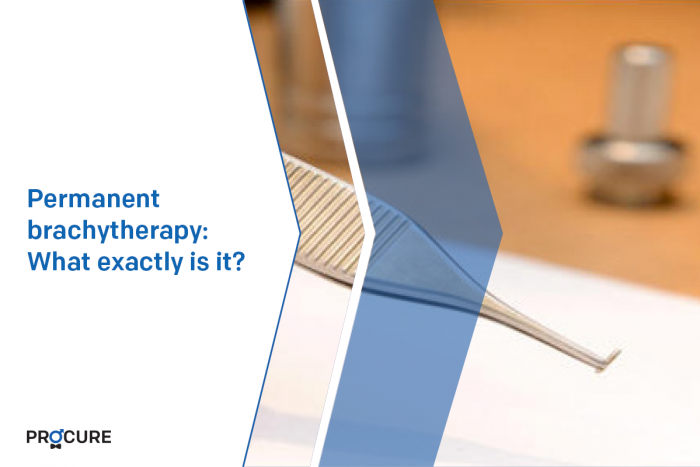Permanent brachytherapy often called low dose rate brachytherapy, administers very small doses of radiation. They are emitted from small sources containing radioactive iodine, called “iodine 125”. These sources look like grains of rice. They stay in your prostate forever. However, their radioactivity decreases over time. After 6 months, 95% of the radioactivity has disappeared. The presence of these sources does not cause any long term problems and does not affect you if you are allergic to iodine.
Permanent brachytherapy could be offered to you if you have been diagnosed with localized prostate cancer at a relatively early stage (T1, T2a), if it is slow growing, therefore at low risk of progression (Gleason 6 or grade group 1) and with a PSA below 10 ng/ml. It may be an option for cancers at intermediate risk of progression (Gleason 7 or grade group 2), but you will have to meet specific criteria to be a candidate.
Brachytherapy cannot be recommended if:
- You have significant symptoms of prostatism related to urinary obstruction or if you have had a transurethral resection of the prostate.
- You have had pelvic radiotherapy, hip problems or are targeted by any other contraindication.
- If your cancer has metastasized.
What are the side effects?
They are similar to those for external beam radiation therapy but differ a bit. As the prostate has been pierced several times, this treatment causes it to swell. Immediately after the procedure, you may have pain in your perineum.
In the short term, brachytherapy can also cause urinary problems, such as weak stream, burning while urinating, frequent urge to urinate. These effects are greatest for 4 to 6 weeks and wear off over the next 3 to 6 months.
In the long term, intestinal disturbances are rare. The same is true for urinary incontinence. As for erectile dysfunction, it gradually appears several months or even years after treatment but does not affect your libido.
These effects depend a lot on your condition before the procedure. A person who already had good erections or no urinary problems is at less risk of the consequences.
It is important to report any side effects to your radiation oncologist!
Whether short, medium, or long term, most side effects can be relieved by taking medications or other interventions/methods.
Take the time to visit each of our pages on this website, as well as our YouTube channel, in order to get familiar with the disease with our expert lectures, our section on available resources, the support that is offered to you.
Do you have any questions or concerns? Above all, do not hesitate. Contact us at 1 855 899-2873 to discuss with a nurse specializing in uro-oncology. It’s simple and free, like all our services.
Pages that might interest you
Want to know more? Just click on one of the links below.
Prognosis and survival
Treatment options
The latest PROCURE news that might interest you
Every week we publish a blog article. Here are some for you.
Did you say prostate cancer?
I want to postpone my treatment… Is that wise?
Prognosis = Doctor, will I be cured?
Written by PROCURE. © All rights reserved – 2021



 ADDITIONAL RESOURCES
ADDITIONAL RESOURCES

